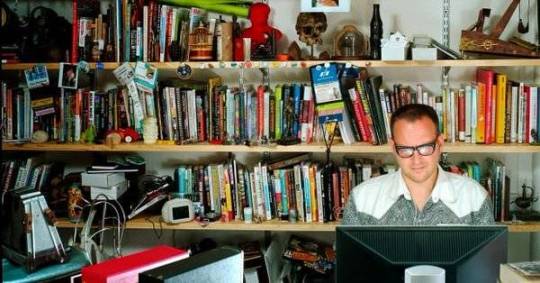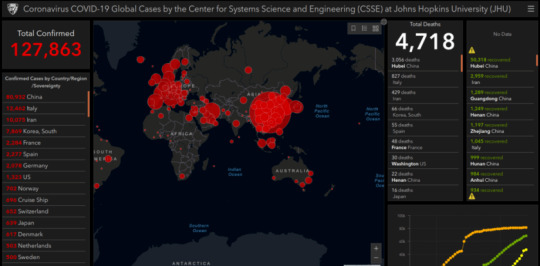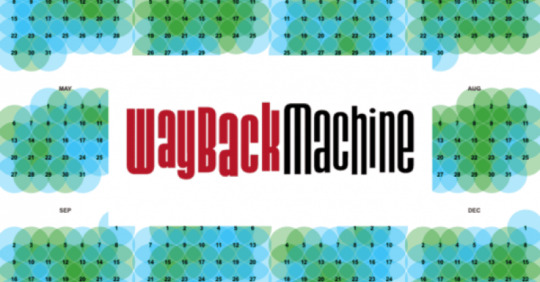#regulatory nihilism
Text
At long last, a meaningful step to protect Americans' privacy

This Saturday (19 Aug), I'm appearing at the San Diego Union-Tribune Festival of Books. I'm on a 2:30PM panel called "Return From Retirement," followed by a signing:
https://www.sandiegouniontribune.com/festivalofbooks

Privacy raises some thorny, subtle and complex issues. It also raises some stupid-simple ones. The American surveillance industry's shell-game is founded on the deliberate confusion of the two, so that the most modest and sensible actions are posed as reductive, simplistic and unworkable.
Two pillars of the American surveillance industry are credit reporting bureaux and data brokers. Both are unbelievably sleazy, reckless and dangerous, and neither faces any real accountability, let alone regulation.
Remember Equifax, the company that doxed every adult in America and was given a mere wrist-slap, and now continues to assemble nonconsensual dossiers on every one of us, without any material oversight improvements?
https://memex.craphound.com/2019/07/20/equifax-settles-with-ftc-cfpb-states-and-consumer-class-actions-for-700m/
Equifax's competitors are no better. Experian doxed the nation again, in 2021:
https://pluralistic.net/2021/04/30/dox-the-world/#experian
It's hard to overstate how fucking scummy the credit reporting world is. Equifax invented the business in 1899, when, as the Retail Credit Company, it used private spies to track queers, political dissidents and "race mixers" so that banks and merchants could discriminate against them:
https://jacobin.com/2017/09/equifax-retail-credit-company-discrimination-loans
As awful as credit reporting is, the data broker industry makes it look like a paragon of virtue. If you want to target an ad to "Rural and Barely Making It" consumers, the brokers have you covered:
https://pluralistic.net/2021/04/13/public-interest-pharma/#axciom
More than 650,000 of these categories exist, allowing advertisers to target substance abusers, depressed teens, and people on the brink of bankruptcy:
https://themarkup.org/privacy/2023/06/08/from-heavy-purchasers-of-pregnancy-tests-to-the-depression-prone-we-found-650000-ways-advertisers-label-you
These companies follow you everywhere, including to abortion clinics, and sell the data to just about anyone:
https://pluralistic.net/2022/05/07/safegraph-spies-and-lies/#theres-no-i-in-uterus
There are zillions of these data brokers, operating in an unregulated wild west industry. Many of them have been rolled up into tech giants (Oracle owns more than 80 brokers), while others merely do business with ad-tech giants like Google and Meta, who are some of their best customers.
As bad as these two sectors are, they're even worse in combination – the harms data brokers (sloppy, invasive) inflict on us when they supply credit bureaux (consequential, secretive, intransigent) are far worse than the sum of the harms of each.
And now for some good news. The Consumer Finance Protection Bureau, under the leadership of Rohit Chopra, has declared war on this alliance:
https://www.techdirt.com/2023/08/16/cfpb-looks-to-restrict-the-sleazy-link-between-credit-reporting-agencies-and-data-brokers/
They've proposed new rules limiting the trade between brokers and bureaux, under the Fair Credit Reporting Act, putting strict restrictions on the transfer of information between the two:
https://www.cnn.com/2023/08/15/tech/privacy-rules-data-brokers/index.html
As Karl Bode writes for Techdirt, this is long overdue and meaningful. Remember all the handwringing and chest-thumping about Tiktok stealing Americans' data to the Chinese military? China doesn't need Tiktok to get that data – it can buy it from data-brokers. For peanuts.
The CFPB action is part of a muscular style of governance that is characteristic of the best Biden appointees, who are some of the most principled and competent in living memory. These regulators have scoured the legislation that gives them the power to act on behalf of the American people and discovered an arsenal of action they can take:
https://pluralistic.net/2022/10/18/administrative-competence/#i-know-stuff
Alas, not all the Biden appointees have the will or the skill to pull this trick off. The corporate Dems' darlings are mired in #LearnedHelplessness, convinced that they can't – or shouldn't – use their prodigious powers to step in to curb corporate power:
https://pluralistic.net/2023/01/10/the-courage-to-govern/#whos-in-charge
And it's true that privacy regulation faces stiff headwinds. Surveillance is a public-private partnership from hell. Cops and spies love to raid the surveillance industries' dossiers, treating them as an off-the-books, warrantless source of unconstitutional personal data on their targets:
https://pluralistic.net/2021/02/16/ring-ring-lapd-calling/#ring
These powerful state actors reliably intervene to hamstring attempts at privacy law, defending the massive profits raked in by data brokers and credit bureaux. These profits, meanwhile, can be mobilized as lobbying dollars that work lawmakers and regulators from the private sector side. Caught in the squeeze between powerful government actors (the true "Deep State") and a cartel of filthy rich private spies, lawmakers and regulators are frozen in place.
Or, at least, they were. The CFPB's discovery that it had the power all along to curb commercial surveillance follows on from the FTC's similar realization last summer:
https://pluralistic.net/2022/08/12/regulatory-uncapture/#conscious-uncoupling
I don't want to pretend that all privacy questions can be resolved with simple, bright-line rules. It's not clear who "owns" many classes of private data – does your mother own the fact that she gave birth to you, or do you? What if you disagree about such a disclosure – say, if you want to identify your mother as an abusive parent and she objects?
But there are so many stupid-simple privacy questions. Credit bureaux and data-brokers don't inhabit any kind of grey area. They simply should not exist. Getting rid of them is a project of years, but it starts with hacking away at their sources of profits, stripping them of defenses so we can finally annihilate them.


I'm kickstarting the audiobook for "The Internet Con: How To Seize the Means of Computation," a Big Tech disassembly manual to disenshittify the web and make a new, good internet to succeed the old, good internet. It's a DRM-free book, which means Audible won't carry it, so this crowdfunder is essential. Back now to get the audio, Verso hardcover and ebook:
http://seizethemeansofcomputation.org

If you'd like an essay-formatted version of this post to read or share, here's a link to it on pluralistic.net, my surveillance-free, ad-free, tracker-free blog:
https://pluralistic.net/2023/08/16/the-second-best-time-is-now/#the-point-of-a-system-is-what-it-does

Image:
Cryteria (modified)
https://commons.wikimedia.org/wiki/File:HAL9000.svg
CC BY 3.0 https://creativecommons.org/licenses/by-sa/3.0/deed.en
#pluralistic#privacy#data brokers#cfpb#consumer finance protection bureau#regulation#regulatory nihilism#regulatory capture#trustbusting#monopoly#antitrust#private public partnerships from hell#deep state#photocopier kickers#rohit chopra#learned helplessness#equifax#credit reporting#credit reporting bureaux#experian
309 notes
·
View notes
Text
when the supreme court decision re: abortion happened i was still kind of in the ‘this is to drive up the population and make more low wage workers!’ mindset but i’m starting to better understand how the US economy actually works. because of imperialism and US dollar hegemony it became much cheaper for the country to de-industrialize by outsourcing labor to the oppressed former colonies overseas. this meant that the masses of people in the US became essentially redundant to the ruling class-- basically, an expensive drain on their wealth that necessitate infrastructural funding that they see as money coming out of their pockets. the ultimate goal of the ruling class is to de-populate the country to alleviate that expense, which is why we have a massive prison population laboring in deplorable conditions, skyrocketing unemployment and suicide rates, overcrowding and chronic disease in reservations, ghettos, and trailer parks, poor sewage infrastructure and access to healthy food in the rural and urban united states, rampant drug and alcohol addiction that the state pretends to have no real power over (because they’re funding it lol), complete corporate capture of regulatory bodies meant to protect us from unsafe prescription drugs and food products, and a healthcare system that’s inaccessible to the majority of americans and atrociously understaffed. it’s why so many of us that are employed work unfulfilling bullshit jobs whose purpose is completely divorced from the day to day maintenance of our society, something to basically keep a select group of americans content enough to not rebel but neurotic enough to continue consuming the overproduced luxury goods made by people paid pennies an hour for their work on the other side of the world. everybody else is excess humanity. our sharply declining standard of living and life expectancy reflects that these policies are working quite well at culling this excess humanity
i think the left makes the mistake of not being adequately vigilant about the historical trajectory of eugenics into the modern day, or how it’s being marketed to them. nihilism, individualism, partisanship, and misanthropy are intentionally cultivated by the ruling class to keep us apathetic, or to re-direct our dissent in ways that suit them. malthusianism is popular amongst environmentalists in particular, which you saw a lot of with the ‘we are the disease’ rhetoric in the early stages of the pandemic. the anti-natalist movement also seems suspicious as fuck to me too. i understand the feminist arguments cautioning against partnering with males (even if i think that’s ultimately an individual-based bandaid solution to a societal problem) given their current stage of violent misogynist brainwashing, but on the environmental side of things distilling human beings down to their impact on consumption and emissions is the most fucked up sociopathic shit i see coming out of certain sectors of the so-called “left”. i would spit on these “stop having kids” and human extinction movement motherfuckers if i saw them in public
a lot of marxists even have trouble grappling with the idea that the great reset, globalization (aka neoliberal imperialism), and de-population are issues they need to analyze because those ideas are considered the exclusive ideological domain of the right, which is such a shame because the global south and nationally oppressed peoples of the US are the primary targets of these policies. they’re also like, the stated policies of the billionaire class expressed openly at conferences like the world economic forum. this is why i’m so against the over-identification with new leftism amongst marxists. it causes you to view yourself as a further extension of the liberal left when your job is to be authentic dialectical materialists-- there are no shortcuts to study, and sometimes study will put you very much at odds with the fully co-opted liberal left you’ve recruited much of your base from while never putting you at odds with the interests of the working class. your job is to analyze reality and bring your findings to the masses, not to tail and absorb the ideology of movements co-opted by the ruling class
#to tie it back to my point re: abortion#i think it was mainly a mutually beneficial cynical ploy to get people voting blue for the midterms + give the demoralized republicans a win#women are just pawns on the political chessboard to these people
4 notes
·
View notes
Text
Tables Turned

Dear Caroline:
One of the arguments that are usually made to defend the classics (and, in general, devoting longs swathes of time to studying the writings of the past) is that in some cases they possess some eternal wisdom, some essential truth and/or beauty that is capable of withstanding the passage of time and the changes in culture. I don't think I completely believe in this anymore (except, perhaps, for Mathematics), but I would definitely like to believe it. And a lot of ancient texts actually give me joy, and feel meaningful to my present.
I suspect though, that there is here at play some subconscious effort at adaptation. In fact, it could be argued that more than fidelity to the spirit, fidelity to the text and creative reinterpretations of its content, meaning, purpose and value are what actually keep texts alive as part of a Great Conversation that imbues them with layers of meaning. And layers which paradoxically end up providing more value than what actually started them: think of pearls, created from impurities within an oyster, or trapped insects in amber.
We also have the opposite, which you might call 'anti-classical texts', texts that seem to have aged really badly. And yet they still have their charms and fascinations. Your post above would be a case in point. Another, those archeologies of the future represented by the quaint possible futures of very old (say, from the eighties backwards) science fictions.
I fear the honey of your gladness at working in crypto must have turned by now into ashes in your mouth. And it's not only you: there's this funereal feeling, "depressing as shit" that can be seen in articles and tweets and is a direct result of the FTX fiasco and the regulatory push that is taking place, and that only a couple of days ago with the SEC taking Binance to court. In its eternal quest for greener pastures, Capital seems focused right now on AI, which I suspect can aptly be described to as "99% bullshit, but in a surprisingly wholesome way".
Quote:
Omnia mutantur, nihil interit
Ovid
0 notes
Text
Indosat Klaim Nihil Pemakai Ponsel 3G, Shutdown Jaringannya Akhir 2022
Indosat Klaim Nihil Pemakai Ponsel 3G, Shutdown Jaringannya Akhir 2022
PT. BESTPROFIT FUTURES
Indosat Ooredoo Hutchison (IOH) mengaku akan mengupayakan mematikan layanan selular generasi ketiga atau 3G di Indonesia akhir 2022 salah satunya karena tak ada lagi yang memakai ponsel 3G.
“Akhir tahun ini, akhir tahun 2022 (layanan 3G) diusahakan shutdown,” kata Director and Chief Regulatory Officer IOH, Muhammad Danny Buldansyah kepada wartawan, Rabu (20/4), di…

View On WordPress
#BEST PROFIT#BEST PROFIT FUTURES#BestPro#BESTPROFIT#BESTPROFIT FUTURES#BPF#BPF BANJAR#BPF BANJARMASIN#PT BEST#PT BEST PROFIT#PT BEST PROFIT FUTURES#PT BESTPROFIT#PT BESTPROFIT FUTURES#PT BPF#PT.BPF
0 notes
Text
This is your SolarWakeup for June 25th, 2020
Shale Revolution Was A Loser. The shale gas revolution was supposed to be something special, lots of money being made and littered around. According to a Deloitte report the reality is the total opposite and the numbers are staggering. Over the past 15 years, the US shale industry has returned $300billion in negative cash flow and impaired $450billion in invested capital.
Climate Change Polls Improve. In the latest Pew research on climate change, results continue to show that our industry and the broader clean energy space has excellent bipartisan support. That support is greater than 80% on most issues when you remove conservative republicans from the analysis. Invest more in ‘alternative energy’ is 81%-97% and the big winner is planting a trillion trees which polled at over 87% for all political groups. At the end of the day the polling is much better on the solution than the issue.
Young People Know. The GOP has an internal generational problem on the issue of climate change and renewable energy. Boomers support renewable energy at 55% versus the millennials at 79%. You may be surprised to know that there are republicans working in solar and they tend to be my age or younger. That’s the upside of solar, it’s fundamentally a bipartisan issue. You can support it for a variety of reasons that align with your ideology.
Revenue Stacking Goes Distributed. It was a recent switch that went off in my mind but virtual power plants are a huge new segment for our market. Batteries will not just be there for homeowners that are looking to shift energy consumption or to have backup power. Owners of storage will be able to monetize by partnering with load service entities just like East Bay Clean Energy did for their pilot program. Keep your eyes on this space, I’m intrigued.
SEBANE Annual Awards. Join SEBANE for our Third Annual Summer Solstice Celebration and Awards Event, being held virtually today. The Summer Solstice and Awards Celebration will feature remarks from SEBANE President Mark Sylvia, public officials, and industry stakeholders, will include a virtual happy hour.
Oilprice.com: U.S. Shale Has Lost $300 Billion In 15 Years
Vox: US public opinion supports action on climate change — and has for years
Axios: The GOP faces a generational gap on climate change
PV-Tech: Adding intelligent storage can boost solar project revenues by 50%, Stem claims
GreenBiz: Lyft’s 100% EV strategy requires a policy blitz
Reuters: Wells Fargo signs multi-year contracts with Shell for clean energy
Greentech Media: Could Flex Services Draw New Players to the Energy Sector?
Rocky Mountain Institute: Five Trends – US Cities and Counties Are Going Renewable
Opinion
Utility Dive: Hard truths about net metering and the perils of regulatory nihilism
Best, Yann
The post This is your SolarWakeup for June 25th, 2020 appeared first on SolarWakeup.com.
from Solar Energy https://www.solarwakeup.com/2020/06/25/this-is-your-solarwakeup-for-october-18th-2019-2-2-2-2-2-3-2-2-2-2-2-2-2-2-2-2-2-2-2-2-2-2-2-2-2-2-2-3-2-2-2-2-2-2-2-2-2-2-2-2-2-2-2-2-2-2-2-2-2-2-2-2-2-2-2-2-2-2-2-2-2-2-2-2-2-2-2-2-3-2-2-2-2-2-2-54/
0 notes
Photo


https://tinyurl.com/AidsPills #bayer #fireinyourdrawerz #bombsinyourunderwear #blackbagdarkage #medicineshortage #poisonpills #aidsoopsie? #30yearfix #ethiopia #20thcenturies #wmd #genocide #slowkill #murderkillit #21stcenturyskills #ONLY #bayeraspirin #aidspills #hivmedicine #painmeds #hivpositive #THEWHOLELOT #NEWNONO #BIOLOGICAL #BIOCHEM #BIONUCLEAR #GERMWARFARE #HIVEPIDEMIC #COSTBENEFITS #criminaltort #warcrimes #CORPORATEUNITY #unitednations @unitednationshumanrights #genocide @bayerofficial #populationcontrol #movemakers #powerplayers #v2k #powerplay #globalism #terrorism #nihilism #wmd #how8upisyou #QUITE8thefuckUpEnough #250000 #codified #luckywhites #WHO #SURELY #WILLNOTDIE #ARECHOSEN. #goodadvice #businesssense #legalease #watchdogged #regulatory #agency #legalschmegal #penalpenal #dickburnt, #No. #NewNoNo: #ALLTHATSHIT #ALLTHAT #THATDEATH #THEBANK #RUNIT #PRAISEALMIGHTY for the #BLACKMADONNA #BLACKMIRACLE #BLACKWOMB #BLACKMOTHER #BLACKAMERICA #BLACKPEOPLE #ALLPEOPLE #RESURRECTION #BLACKJESUS #NEVERAGAIN #AFTER911 #NOMORE #NONEOFIT @bayer@bayerus #NEWDAY #FREEGOSPEL #LUCKYUS #PRAISEALMIGHTY #AlmightyGod #WORSHIPGOD
0 notes
Text
Why Everything We Know About Salt May NOT Be Wrong
A recent New York Times column offered us this provocative headline: Why Everything We Know About Salt May Be Wrong. Presumably that means- it may be right, too. Hence, my counter-headline.
I think what we know mostly is right. Here’s what I think we know:
Too much salt is bad for us. That one is almost tautological, since if it weren’t bad for us, it wouldn’t be too much.
Most of us consume too much salt. Most of the salt we consume- roughly 80%- is processed into foods we didn’t prepare ourselves. Eat less of those processed foods- especially hyper-processed foods, processed meats, and fast food- and more vegetables, fruits, whole grains, beans, lentils, unsalted nuts and seeds - and you’ll be better off for many reasons both related and unrelated to salt. Prepare meals at home from wholesome ingredients when possible and you’ll be better off. Drink plain water preferentially when thirsty- and you’ll be better off again. That’s what I think we know, and I think it’s all correct. If you like to get your punch lines and move on, our work here is done.
For the rest of you:
What we seem not to know about salt is the ideal intake level, and in particular, variations in that level based on age, health status, and genetics, among other factors. But we have long known that sodium is an essential nutrient, that we all need some, and that it’s possible to consume too much or too little. Debate about where best to draw the dividing line, and in particular whether it should be drawn in different places for different populations, is more a matter of refinement than refutation, evolution rather than revolution. It’s how science is supposed to advance.
The source of the new provocation presented to us in the Times is two research papers recently published in the Journal of Clinical Investigation, one involving mice, the other ten male cosmonauts in a simulated space environment. If that sounds like a somewhat dubious start to a dismissal of decades of research involving actual human beings, in much larger numbers, and subject to such pesky nuances as living in earth-like conditions, I’m inclined to agree. Mice and cosmonauts may teach us interesting new things about salt, but they are unlikely to reveal that everything learned to date is wrong.
Looking at the studies, they did no such thing. As acknowledged by the Times reporter, the papers are rather dense, enumerating a great many measures in recondite detail. For our purposes here, the gist will do.
The investigators found that both the ten healthy men in their simulated space station, and C57/BL6 mice are good at conserving levels of body water across a range of sodium intake. Complex hormonal fluctuations, some directly in response to diet and some part of underlying body rhythms, allowed for marked variation in the excretion of sodium (i.e., its removal in urine) without corresponding changes in urine volume. We have long known of the kidneys’ ability to concentrate or dilute urine over a wide but finite range, and these findings fit comfortably within that expanse of understanding.
Translating their own findings into succinct take-away messages, the researchers suggest that, in mice, “the kidneys, liver, and skeletal muscle form a physiological-regulatory network for extracellular volume control…” In plain English, the kidneys and other organs in the body work together, under the influence of various hormones, to regulate fluid volume and electrolyte levels. When mice were given a high sodium load in the absence of a high water intake, they generated water in their own bodies by breaking down fat and muscle.
In humans, the researchers noted that: “long-term maintenance of body fluid homeostasis…may be less dependent on external water sources than is currently believed.” Fluid intake did not vary reliably with salt intake in the cosmonauts, but the more salt they consumed, the hungrier they tended to be.
The two studies are clearly valuable to the advance of science in this area. The finding that hunger varied with sodium intake in the cosmonauts far more reliably than thirst is particularly interesting. But the notion that the findings are an invitation to the general public to abandon all we thought we knew about salt intake is wrong, dangerous, and irresponsible.
It has long been clear that salty is a preferred flavor sensation that stimulates appetite. While sweet is the one flavor preference known to be innate, a predilection for salt comes easily, early, and all but universally. The salience of this in modern food processing, and its relevance to efforts by Big Food to maximize how much eating we all do, and thus their profits, is addressed in considerable detail by Michael Moss among others, in both his book- and his writing for the New York Times.
While it is somewhat surprising that salt fostered hunger more than thirst in the cosmonauts, I’m not sure that precludes the prospect of it doing both in the real world. At any given bar stool, tasty, salty snacks fairly reliably invite eating; perhaps it’s that eating as much as the salt per se that tends to invite concomitant drinking.
The Times column, noting that high salt intake under conditions of fixed water intake may induce the body to break down muscle and fat, suggests a possible advantage of high salt intake for weight loss. But the appended reflection is precautionary: salt intake appears to stimulate hunger. In other words, salt intake may help with weight loss only if you eat a lot of salt, and despite being very hungry, don’t eat more food. Welcome to the “Salt Diet,” and the kind of deprivation that causes every other diet to fail. Interesting mechanistically? Yes. A reason to abandon all we thought we knew? Surely not.
This particular invitation to nutritional nihilism, by a journalist seemingly devoted to that very cause, is especially concerning and unfortunate. After many years of clarity about public health goals related to sodium- namely, the benefits of consuming less- confusion has recently been propagated by the legitimate debate among scientists over optimal levels. That debate has been misrepresented to imply that efforts to reduce intake by those consuming what we might call modern, industrial diets is premature. But intake levels in the U.S. and much of the modern world are well above the range being debated. Sodium excess is the current, clear, and all but omnipresent danger.
How much so? The Center for Science in the Public Interest attributes hundreds of thousands of premature deaths to excess sodium intake in the U.S. A recent study in JAMA, stunningly unmentioned in the Times column, examined dietary factors associated with chronic disease and premature death at the level of the entire U.S. population. The single dietary factor associated with the most cardiometabolic death was: excess sodium intake.
As noted above, we get most of our sodium from processed foods- so perhaps the ills of sodium are in part attributable to the company it tends to keep. Be that as it may, the JAMA paper is a timely reminder of how foolish it would be to abandon all we thought we know about salt.
We thought we knew that excess salt is bad for us, and it is. We thought we knew that most of us consuming modern diets get too much, and we do. We thought we knew that salt makes us hungry, and it does. We thought we knew that it makes us thirsty, too, and maybe that depends in part on what and how much we eat. We thought we were uncertain about the ideal threshold for sodium, and how variable it might be, and indeed- we are. We don’t need to know everything to know that we don’t know nothing.
The coverage in the NY Times seems part of a disturbing pattern in health journalism. In apparent solidarity with far less reputable publications, the paper tends to favor nutrition controversy over consensus, and to exaggerate the out-of-context significance of any given study for the sake of provocation, if not titillation.
The misrepresentation of any one study, small group of cosmonauts, or batch of mice- and the incremental advance in understanding they contribute- as a replacement for all we knew prior is a pernicious theme in modern health journalism that wounds public health. Hyperbolic headlines propagating unfounded positions and misapprehensions put salt in those wounds. Among the things I thought we knew about salt, I thought we knew we certainly shouldn’t do that.
-fin
David L. Katz
Director, Yale University Prevention Research Center; Griffin Hospital
Immediate Past-President, American College of Lifestyle Medicine
Senior Medical Advisor, Verywell.com
Founder, The True Health Initiative
Follow at: LinkedIN; Twitter; Facebook
Read at: INfluencer Blog; Huffington Post; US News & World Report; Verywell; Forbes
-- This feed and its contents are the property of The Huffington Post, and use is subject to our terms. It may be used for personal consumption, but may not be distributed on a website.
from http://ift.tt/2ptsGXX
from Blogger http://ift.tt/2ptdCcU
0 notes
Text
Why Everything We Know About Salt May NOT Be Wrong
A recent New York Times column offered us this provocative headline: Why Everything We Know About Salt May Be Wrong. Presumably that means- it may be right, too. Hence, my counter-headline.
I think what we know mostly is right. Here’s what I think we know:
Too much salt is bad for us. That one is almost tautological, since if it weren’t bad for us, it wouldn’t be too much.
Most of us consume too much salt. Most of the salt we consume- roughly 80%- is processed into foods we didn’t prepare ourselves. Eat less of those processed foods- especially hyper-processed foods, processed meats, and fast food- and more vegetables, fruits, whole grains, beans, lentils, unsalted nuts and seeds - and you’ll be better off for many reasons both related and unrelated to salt. Prepare meals at home from wholesome ingredients when possible and you’ll be better off. Drink plain water preferentially when thirsty- and you’ll be better off again. That’s what I think we know, and I think it’s all correct. If you like to get your punch lines and move on, our work here is done.
For the rest of you:
What we seem not to know about salt is the ideal intake level, and in particular, variations in that level based on age, health status, and genetics, among other factors. But we have long known that sodium is an essential nutrient, that we all need some, and that it’s possible to consume too much or too little. Debate about where best to draw the dividing line, and in particular whether it should be drawn in different places for different populations, is more a matter of refinement than refutation, evolution rather than revolution. It’s how science is supposed to advance.
The source of the new provocation presented to us in the Times is two research papers recently published in the Journal of Clinical Investigation, one involving mice, the other ten male cosmonauts in a simulated space environment. If that sounds like a somewhat dubious start to a dismissal of decades of research involving actual human beings, in much larger numbers, and subject to such pesky nuances as living in earth-like conditions, I’m inclined to agree. Mice and cosmonauts may teach us interesting new things about salt, but they are unlikely to reveal that everything learned to date is wrong.
Looking at the studies, they did no such thing. As acknowledged by the Times reporter, the papers are rather dense, enumerating a great many measures in recondite detail. For our purposes here, the gist will do.
The investigators found that both the ten healthy men in their simulated space station, and C57/BL6 mice are good at conserving levels of body water across a range of sodium intake. Complex hormonal fluctuations, some directly in response to diet and some part of underlying body rhythms, allowed for marked variation in the excretion of sodium (i.e., its removal in urine) without corresponding changes in urine volume. We have long known of the kidneys’ ability to concentrate or dilute urine over a wide but finite range, and these findings fit comfortably within that expanse of understanding.
Translating their own findings into succinct take-away messages, the researchers suggest that, in mice, “the kidneys, liver, and skeletal muscle form a physiological-regulatory network for extracellular volume control…” In plain English, the kidneys and other organs in the body work together, under the influence of various hormones, to regulate fluid volume and electrolyte levels. When mice were given a high sodium load in the absence of a high water intake, they generated water in their own bodies by breaking down fat and muscle.
In humans, the researchers noted that: “long-term maintenance of body fluid homeostasis…may be less dependent on external water sources than is currently believed.” Fluid intake did not vary reliably with salt intake in the cosmonauts, but the more salt they consumed, the hungrier they tended to be.
The two studies are clearly valuable to the advance of science in this area. The finding that hunger varied with sodium intake in the cosmonauts far more reliably than thirst is particularly interesting. But the notion that the findings are an invitation to the general public to abandon all we thought we knew about salt intake is wrong, dangerous, and irresponsible.
It has long been clear that salty is a preferred flavor sensation that stimulates appetite. While sweet is the one flavor preference known to be innate, a predilection for salt comes easily, early, and all but universally. The salience of this in modern food processing, and its relevance to efforts by Big Food to maximize how much eating we all do, and thus their profits, is addressed in considerable detail by Michael Moss among others, in both his book- and his writing for the New York Times.
While it is somewhat surprising that salt fostered hunger more than thirst in the cosmonauts, I’m not sure that precludes the prospect of it doing both in the real world. At any given bar stool, tasty, salty snacks fairly reliably invite eating; perhaps it’s that eating as much as the salt per se that tends to invite concomitant drinking.
The Times column, noting that high salt intake under conditions of fixed water intake may induce the body to break down muscle and fat, suggests a possible advantage of high salt intake for weight loss. But the appended reflection is precautionary: salt intake appears to stimulate hunger. In other words, salt intake may help with weight loss only if you eat a lot of salt, and despite being very hungry, don’t eat more food. Welcome to the “Salt Diet,” and the kind of deprivation that causes every other diet to fail. Interesting mechanistically? Yes. A reason to abandon all we thought we knew? Surely not.
This particular invitation to nutritional nihilism, by a journalist seemingly devoted to that very cause, is especially concerning and unfortunate. After many years of clarity about public health goals related to sodium- namely, the benefits of consuming less- confusion has recently been propagated by the legitimate debate among scientists over optimal levels. That debate has been misrepresented to imply that efforts to reduce intake by those consuming what we might call modern, industrial diets is premature. But intake levels in the U.S. and much of the modern world are well above the range being debated. Sodium excess is the current, clear, and all but omnipresent danger.
How much so? The Center for Science in the Public Interest attributes hundreds of thousands of premature deaths to excess sodium intake in the U.S. A recent study in JAMA, stunningly unmentioned in the Times column, examined dietary factors associated with chronic disease and premature death at the level of the entire U.S. population. The single dietary factor associated with the most cardiometabolic death was: excess sodium intake.
As noted above, we get most of our sodium from processed foods- so perhaps the ills of sodium are in part attributable to the company it tends to keep. Be that as it may, the JAMA paper is a timely reminder of how foolish it would be to abandon all we thought we know about salt.
We thought we knew that excess salt is bad for us, and it is. We thought we knew that most of us consuming modern diets get too much, and we do. We thought we knew that salt makes us hungry, and it does. We thought we knew that it makes us thirsty, too, and maybe that depends in part on what and how much we eat. We thought we were uncertain about the ideal threshold for sodium, and how variable it might be, and indeed- we are. We don’t need to know everything to know that we don’t know nothing.
The coverage in the NY Times seems part of a disturbing pattern in health journalism. In apparent solidarity with far less reputable publications, the paper tends to favor nutrition controversy over consensus, and to exaggerate the out-of-context significance of any given study for the sake of provocation, if not titillation.
The misrepresentation of any one study, small group of cosmonauts, or batch of mice- and the incremental advance in understanding they contribute- as a replacement for all we knew prior is a pernicious theme in modern health journalism that wounds public health. Hyperbolic headlines propagating unfounded positions and misapprehensions put salt in those wounds. Among the things I thought we knew about salt, I thought we knew we certainly shouldn’t do that.
-fin
David L. Katz
Director, Yale University Prevention Research Center; Griffin Hospital
Immediate Past-President, American College of Lifestyle Medicine
Senior Medical Advisor, Verywell.com
Founder, The True Health Initiative
Follow at: LinkedIN; Twitter; Facebook
Read at: INfluencer Blog; Huffington Post; US News & World Report; Verywell; Forbes
-- This feed and its contents are the property of The Huffington Post, and use is subject to our terms. It may be used for personal consumption, but may not be distributed on a website.
from Healthy Living - The Huffington Post http://bit.ly/2r29RL9
0 notes
Text
Podcasting "Regulatory Capture"

This week on my podcast, I read my Medium column, “Regulatory Capture: Beyond Revolving Doors and Against Regulatory Nihilism,” about the left/right split on theories of sound regulation:
https://doctorow.medium.com/regulatory-capture-59b2013e2526
The column opens by recounting a recent, extremely public, extremely egregious example of regulatory capture: the way that Trump’s FCC chair Ajit Pai — a former Verizon lawyer — killed Net Neutrality.
Net Neutrality is a very simple proposition: it’s the idea that your ISP should send you the bits you request when you click links as quickly and efficiently as it can. The opposite of neutrality is net discrimination, which is when your ISP demands bribes from the services you want to use, and punishes the companies that refuse to pay by slowing down their connections to you.
No one wants this, for fairly obvious reasons, which left Pai with a dilemma: as a matter of law, he couldn’t just kill off Net Neutrality; first, he had to seek public comment on the proposal, and the public didn’t want Net Neutrality dead. When John Oliver did an episode about this, 1.5m people commented in the docket, melting the FCC’s servers.
https://www.youtube.com/watch?v=92vuuZt7wak
If Pai had listened to those commenters, he wouldn’t have been able to kill Net Neutrality. Instead, he falsely claimed that the FCC’s website had gone down because it had been hacked:
https://techcrunch.com/2018/08/06/fcc-admits-it-was-never-actually-hacked/
(He subsequently lied about lying about this, which is wild)
https://gizmodo.com/heres-the-internal-report-proving-the-fcc-made-up-a-cyb-1828166991
Then he reopened the server for more comments. This time, 22 million comments flooded in. But unlike the comments that came in the first time around, these ones supported Pai’s plan to kill Net Neutrality. That was weird, but weirder still was who had (purportedly) sent those comments. A million identical comments came from people with @pornhub.com addresses:
https://arstechnica.com/tech-policy/2018/01/analysis-shows-majority-of-anti-net-neutrality-comments-came-from-bots/
Millions more came from the addresses of people who’d been compromised in data breaches, including many dead people:
https://www.vice.com/en/article/evg3xw/dead-people-are-posting-anti-net-neutrality-comments-to-the-fcc-website
Two came from sitting US Senators — Senators who supported Net Neutrality and denied having sent the comments in:
https://www.vice.com/en/article/8xeqqz/two-senators-say-their-identities-were-stolen-during-net-neutrality-repeal
More came from nonsense email addresses:
https://www.zdnet.com/article/a-bot-is-flooding-the-fccs-website-with-fake-anti-net-neutrality-comments/
But Pai — incredibly — declared these obviously forged comments to be the legitimate will of the people:
https://www.vocativ.com/431065/fcc-ajit-pai-net-neutrality-bots/
And obstructed a law-enforcement investigation into the comments:
https://www.vice.com/en/article/wjzjv9/net-neutrality-fraud-ny-attorney-general-investigation
(That investigation later determined that the fakes had been sent by a dirty-tricks firm in the pay of Big Cable and Big Telco companies):
https://pluralistic.net/2021/05/06/boogeration/#pais-lies
Pai and the FCC finished off Net Neutrality at a “public meeting” held under cover of Thanksgiving weekend, with the public’s attention elsewhere, which allowed them to tell a bunch of easily disproved lies:
https://www.techdirt.com/2017/11/21/fcc-plan-to-use-thanksgiving-to-hide-attack-net-neutrality-vastly-underestimates-looming-backlash/
Today, Pai’s an investment banker, using his access to the capital markets to buy up and consolidate small ISPs, which they call “closing the digital divide”:
https://www.wsj.com/articles/searchlight-capital-bets-on-universal-broadband-11632481201
That’s as neat a parable about regulatory capture as you could ask for. Pai, an industry executive, was confirmed as FCC chairmen by Republican Senators who had each received small (or large!) fortunes in campaign contributions from the carriers and cable companies Pai would go on to oversee.
Pai then cheated and lied to create regulation that his former employer and its cartelmates could use to extract billions from the American public, whom he had sworn to serve. Moreover, Pai ordered the FCC to drop its opposition to state laws (also lobbied into existence by the ISP cartel) that banned cities from offering competing network.
This is the formal definition of regulatory capture: that industries will suborn their regulators and thus gain access to the power of government, which they will use to suppress competitors and harm the public.
But while that is undoubtably what’s going on here, the ideological origins of the theory of regulatory capture are not in anti-corporate, leftist thinking. Regulatory capture was popularized by the “public choice theory” school of economics, a cynical, far-right branch of neoliberal Chicago School economics. It’s of a piece with the ideological project of cheering on monopolies as “efficient,” promoting unlimited campaign contributions as “free speech” and celebrating inequality as “fair.”
The public choice account of regulatory capture goes like this: a corporate-friendly regulation might hurt the public a lot more than it benefits a company, but because the company has concentrated gains, and the public has diffuse losses, the public won’t fight as hard as the company will. Thus, any regulator who has any power will be hijacked by the companies that it is supposed to regulate, and they will use that power to clobber their competitors and screw the public.
Public choice theorists insist that there’s nothing that can be done about this. If we give regulators more power, that will just make them into juicier prizes for corporate corruptors, who will spend even more to capture them.
In public choice theory, the only thing we can do to keep regulators from being captured is to eliminate regulators altogether — or at least, to the greatest degree possible.
When you hear people on the right talk about “regulatory capture,” that what they’re talking about — not making companies more accountable to regulators, but eliminating regulators so that they can’t be captured. “This game,” they say, “is rigged. One team is so powerful that the ref is working for them. The answer is to eliminate the ref. Then that powerful team will play fair.”
Put that way, it’s easy to see the problem with the right’s conception of regulatory capture: it excludes the possibility that we might safeguard regulators from capture by making companies weaker, and instead argues that companies should be as strong as they can be, and that we should voluntarily give up any hope of protecting ourselves from these all-powerful titans.
Think about the political economy of regulatory capture. For Ajit Pai to kill Net Neutrality, the telecoms sector first had to create a cartel. It had to buy up or destroy all the small competitors and then the survivors had to merge. By doing this, the ISPs were able to conspire to divide up the country so that they didn’t have to compete with one other. That let them extract “monopoly rents” — the massive margins that companies without competitors can extract from their customers and workers. Thus armed with surplus billions, the highly concentrated sector could leverage its small numbers to agree on how to spend those billions to corrupt the senators who confirmed Pai and the think-tanks and dirty tricksters who produced the evidentiary record that let him kill Net Neutrality.
If the ISP sector consisted of hundreds of squabbling companies all at each other’s throats, they’d be undercutting each other’s prices, depriving the sector of those corrupting excess billions. And if they were a squabbling mob — rather than a cartel of giants — they wouldn’t be able to agree on a single regulatory agenda.
When one company told a lie to the FCC, its bitter rival would be right behind it, waiting to debunk that lie. They wouldn’t just compete for your business — they’d compete to supply information to regulators.
Regulators can make good regulation. That’s why your dinner doesn’t give you food poisoning, why your kid learned to read at school, why your phone’s battery doesn’t blow your face off. But for regulation to be good, regulators and lawmakers have to fear and respect the public — not lobbyists.
Public choice theory — and its adjacent economic ideas, like “money is speech” and “monopoly is efficient” — has produced a system where any regulator can be captured. But that’s because public choice theory is part of a project to produce cartels and arm them with fortunes to use when they set out to capture their regulators.
Anti-monopoly law — and other anti-corruption policies, like public election campaign financing, and laws against public servants rotating into jobs in the sector they previously oversaw — can produce a governable private sector, one that can’t readily capture its regulators.
The FCC didn’t kill Net Neutrality because it was too strong. It did so because it was so very weak. The Commission didn’t have the resources to fact-check the big carriers’ lies. It had eliminated the data-gathering projects that tracked carrier performance. It was overseen by lawmakers who were in the carriers’ pockets.
For an agency to oversee an industry, it has to be more powerful than that industry. Obviously. A left theory of regulatory capture isn’t merely about strong agencies — it’s about weak corporations: fighting cartels and monopolies so that they can’t capture their regulators.
The public choice answer to all this is we’re just not deregulated enough. Once we completely dismantle the administrative state, then we’ll achieve nirvana. But that’s not what happens. When we let Boeing self-certify the 737 Max, Boeing wasn’t better — they built planes that fell out of the sky and killed hundreds of people.
We have to regulate, because that’s the alternative: planes falling out of the sky. Expensive, slow broadband. Food poisoning. Medicines that kill. We need regulators that are more afraid of the public than they are of corporations.
The 2014 study “Testing Theories of American Politics: Elites, Interest Groups, and Average Citizens” found that “ordinary citizens… get the policies they favor, but only because those policies happen also to be preferred by the economically-elite citizens who wield the actual influence.”
https://www.cambridge.org/core/journals/perspectives-on-politics/article/testing-theories-of-american-politics-elites-interest-groups-and-average-citizens/62327F513959D0A304D4893B382B992B
That is, the only reason you’re not dead from food poisoning is that some rich person hasn’t decided to kill you yet.
Regulatory capture is real, but the public choice movement’s promotion of regulatory capture theory has nothing to do with blunting corporate power. For everyday people to have a safe and prosperous life, we have to shrink down the corporate titans that public choice theory built, shrink them until they fit in a bathtub…
…and then drown them.
Here’s the podcast episode:
https://craphound.com/news/2022/06/12/regulatory-capture-beyond-revolving-doors-and-against-regulatory-nihilism/
And here’s a direct link to the MP3 (hosting courtesy of the Internet Archive; they’ll host your stuff for free, forever, too):
https://archive.org/download/Cory_Doctorow_Podcast_428/Cory_Doctorow_Podcast_428_-_Regulatory_Capture.mp3
And here’s a link to my podcast feed:
https://feeds.feedburner.com/doctorow_podcast
[Image ID: A Soviet editorial cartoon featuring an ogrish capitalist in top hat and tails yanking a dollar-sign-shaped lever that ejects a tiny bureaucrat from a seat; ranks of bureaucrats behind him wait their turns, grinning idiot grins.]
19 notes
·
View notes
Link
5 notes
·
View notes
Text
Pluralistic: 13 Mar 2020 (The third Little Brother book, Where I write, stream global news, AT&T's CEO gets millions for his failures, Chelsea Manning freed, Katie Porter vs CDC, Trump's scientific nihilism, Covid-malware co-evolution, Siennese solidarity)

Today's links
Announcing the third Little Brother book, Attack Surface: And a new Little Brother/Homeland reissue, with an intro by Ed Snowden!
Where I Write: A column for the CBC that's really about how I write.
Stream 200+ global news channels: Each hand-picked, no registration required.
AT&T's CEO fired 23,000 workers and gave himself a 10% raise: Life on the easiest setting.
Chelsea Manning is free: But she's been fined $256K for refusing to testify to the Grand Jury.
Rep Katie Porter forces CDC boss to commit to free testing: Literally the most effective questioner in Congress.
Trump's unfitness in a plague: It's not because he's an ignoramus, it's because he's a nihilist.
Malware that hides behind a realtime Covid-19 map: Peter Watts' prophecy comes true.
Locked-down Siennese sing their city's hymn: A cause for hope in the dark.
This day in history: 2015, 2019
Colophon: Recent publications, current writing projects, upcoming appearances, current reading

Announcing the third Little Brother book, Attack Surface (permalink)
Attack Surface is the third Little Brother book, coming out next October.
It's told from the point of view of Masha, the young woman who is Marcus Yallow's frenemy who works first for the DHS and then for a private spook outfit. It's a book about how good people talk themselves into doing bad things, and how they redeem themselves. It ranges from Iraq to the color revolutions of the former USSR, to Oakland and the Movement for Black Lives.
The story turns on cutting-edge surveillance and counter-surveillance: self-driving cars, over-the-air baseband radio malware, IMSI catchers, CV dazzle and adversarial examples, binary transparency and warrant canaries.
This week, I did a wide-ranging and deep interview with Andrew Liptak for Polygon about the book, the Little Brother series, the techlash, the tech workers' uprising (and #TechWontBuildIt), and the future of technological self-determination.
We also revealed the cover for Attack Surface, which was designed by the incomparable Will Staehle (who is eligible for a Best Artist Hugo – nominations close today!).
https://us.macmillan.com/books/9781250757531
Not only that, but Staehle has also designed a cover for a new omnibus edition of Little Brother and Homeland that comes out this July, and as you can see from that cover, the book has an all-new introduction by none other than Ed Snowden!

https://us.macmillan.com/books/9781250774583

(In 2017, Staehle also designed all-new covers for my adult backlist)
https://www.tor.com/2017/10/18/cory-doctorow-will-staehle-covers/
The Little Brother books are neither optimistic nor pessimistic about technology: instead, they are hopeful. Hope is the belief that you can materially improve your life if you take action. A belief in human agency and the power of self-determination.
The message of Little Brother is neither "Things will all be fine" nor "We are all doomed."
It's: "This will be so great…if we don't screw it up."

Where I Write (permalink)
I learned to be a writer while my life was in total chaos. Decades later, I have a beautiful office to work in, but I still do my best writing typing hurriedly on subway trains, in taxi-cabs, and airport lounges.
https://www.cbc.ca/arts/finding-comfort-in-the-chaos-how-cory-doctorow-learned-to-write-from-literally-anywhere-1.5489363
My CBC column on where I write is really a primer on how I write: what it takes to be able to write when you're sad, or anxious, or wracked with self-doubt.
Unquestionably the most important skill I've acquired as a writer.
"Even though there were days when the writing felt unbearably awful, and some when it felt like I was mainlining some kind of powdered genius and sweating it out through my fingertips, there was no relation between the way I felt about the words I was writing and their objective quality, assessed in the cold light of day at a safe distance from the day I wrote them. The biggest predictor of how I felt about my writing was how I felt about me. If I was stressed, underslept, insecure, sad, hungry or hungover, my writing felt terrible. If I was brimming over with joy, the writing felt brilliant."

Stream 200+ global news channels (permalink)
TV News is an Android app that pulls like Youtube streams from 200+ global news channels in 50 languages, each manually selected by the app's creator, Steven Clift, whose work I've previously admired.
http://tvnewsapp.com/
You can filter the feeds by country and language and watch them as floating windows that let you continue to use your device while you watch. No registration required, either.
They're shooting for 1000+ channels soon.

AT&T's CEO fired 23,000 workers and gave himself a 10% raise (permalink)
Randall Stephenson is CEO of AT&T. Ajit Pai killed Net Neutrality so that Stephenson could legally slow down the services we requested to extort bribes from us. Then, Trump gave his company a $20B tax cut.
https://www.vice.com/en_us/article/nepxeg/atandt-preps-for-new-layoffs-despite-billions-in-tax-breaks-and-regulatory-favors
Stephenson used that money to raise exec pay, buy back his company's stock to juice its price and to pay off debts from earlier, disastrous mergers. He cut 23,000 jobs and slashed capital spending (America has the worst broadband of any rich country).
https://arstechnica.com/tech-policy/2019/05/att-promised-7000-new-jobs-to-get-tax-break-it-cut-23000-jobs-instead/
After all that, Stephenson congratulated himself on a job well done by giving himself a 10% raise in 2019, bringing his total compensation up to 32 million dollars.
https://arstechnica.com/tech-policy/2020/03/att-ceo-pay-rose-to-32-million-in-2019-while-he-cut-20000-jobs/
I mean the guy earned it. He blew billions of dollars buying Warner and Directv, and then lost billions more on the failed aftermath. If that doesn't warrant a raise, what does?
https://arstechnica.com/information-technology/2019/10/att-loses-another-1-3-million-tv-customers-as-directv-freefall-continues/

Chelsea Manning is free (permalink)
A judge has ordered that Chelsea Manning be released from jail, a day after her latest suicide attempt. She was jailed last March for refusing to testify before a grand jury, held in solitary for two months, then jailed again a few days later, in May, She's been inside ever since.
The judge ordered her release because the Grand Jury had finished its work.
https://www.courtlistener.com/recap/gov.uscourts.vaed.412520/gov.uscourts.vaed.412520.41.0.pdf
It's fantastic to that Manning got her freedom back, but she has been fined $256,000 for her noncompliance. I just donated to her fund:
https://www.gofundme.com/f/help-chelsea-pay-her-court-fines
(Image: Tim Travers Hawkins, CC BY-SA)

Rep Katie Porter forces CDC boss to commit to free testing (permalink)
I am a huge fan of Rep Katie Porter. Her outstanding questioning techniques and unwillingness to countenance bullshit from the people she questions are such a delight to watch.
Here she is demolishing billionaire finance criminal Jamie Dimon:
https://www.youtube.com/watch?v=2WLuuCM6Ej0
Oh, Ben Carson, you never stood a chance:
https://www.youtube.com/watch?v=sVWy3q2kmNM
Steve Mnuchin always looks like a colossal asshole, but rarely this comprehensively:
https://www.youtube.com/watch?v=78zpa0hQ1aw
I almost feel sorry for this Trumpkin from the Consumer Finance Protection Board as she faces Porter's withering fire.
Almost.
https://www.youtube.com/watch?v=gBaCc5VUHS8
Porter – an Elizabeth Warren protege – doesn't do this to grandstand. Like AOC, she uses her spectacular skills to elicit admissions and get them on the record, and to hold Congressional witnesses to account.
Today, Porter attained a new peak in a short, illustrious career. That's because today was the day she questioned CDC assistant secretary for preparedness and response Robert Kadlec, asking him to clarify Trump's televised lie last night that insurers would pay for Covid-19 testing.
https://twitter.com/RepKatiePorter/status/1238147835859779584
Porter doggedly held Kadlec to account, forcing him to acknowledge that the cost of a Covid-19 test – $1,331 – was so high that many would forego it, and then to admit that these Americans could go on to transmit the disease to others, making it a matter of public concern.
Then she forced CDC Director Robert Redfield to admit – as she had informed him in writing the week before – that the CDC had the authority to simply pay those fees, universally, for any American seeking testing, under 42 CFR 71.30:
https://www.govinfo.gov/content/pkg/CFR-2019-title42-vol1/xml/CFR-2019-title42-vol1-part71.xml#seqnum71.30
Having laid this factual record, Porter insisted that Redfield commit to using that authority. Not to consider it, study it, or consult on it. To use it to help save the country. Whenever Redfield waffled, she reclaimed her time and forced him back on point.
KP: Dr. Redfield, will you commit to the CDC, right now, using that existing authority to pay for diagnostic testing, free to every American, regardless of insurance?
RR: Well, I can say that we're going to do everything to make sure everybody can get the care they need –"
KP: Nope, not good enough. Yes or no?
RR: What I'm going to say is, I'm going to review it in detail with CDC and the department —
KP: No, reclaiming my time [repeats the question]
RR: What I was trying to say is that CDC is working with HHS now to see how we operationalize that
KP: Dr. Redfield, I hope that that answer weighs heavily on you, because it is going to weigh very heavily on me and on every American family
RR: Our intent is to make sure that every American family gets the care and treatment they need at this time in this major epidemic and I am currently working with HHS to see how to best operationalize it.
KP: Excellent! Everybody in America hear that — you are eligible to go get tested for coronavirus and have that covered, regardless of insurance
[Curtain]

Trump's unfitness in a plague (permalink)
In this editorial, Science editor-in-chief H Holden Thorp makes a compelling case that Trump is not capable of leading the American response to Covid-19.
https://science.sciencemag.org/content/367/6483/1169
Trump has spent years denigrating and ignoring science before taking office, and it's only gotten worse, since.
As Thorp writes, "You can't insult science when you don't like it and then suddenly insist on something that science can't give on demand."
His policy track-record is even worse: "deep cuts to science, including cuts to funding for the Centers for Disease Control and Prevention and the NIH…nearly 4 years of harming and ignoring science."
This reminds me of an argument I often have with digital rights activists who attribute bad technology policy to the inability of clueless lawmakers to understand the technical nuance. I think that's wrong. The fact that we're not all dead of cholera, even though there are no microbiologists in Congress proves that you don't need to be a domain expert to make good policy.
Good policy comes from truth-seeking exercises in which experts with different views present their best evidence to neutral adjudicators who make determinations in public, showing their work in explicit, written, public reasoning. These processes are made legitimate – and hence robust and reliable – by procedural rules. The adjudicators – regulators, staffers, etc – are not allowed to have conflicts of interest. Their conclusions are subject to the rule of law, with mandatory transparency and a process for appeal.
It has to be this way: there's no way that – say – a president could be an expert on all the different issues that might arise during their tenure.
This, then, is the problem with inequality and market concentration: it merges the referees with the players. When an industry only has a handful of players, they all end up with common lobbying positions – a common position on what is truth. That's because the C-suites of these five companies are filled with people who've worked at two, three or four of the competitors, and are married to others who've worked at the remainder. They're godparents to one anothers' kids, executors of each others' wills.
There's no way for there NOT to be collusion in these circumstances.
And when an industry is that concentrated, the only people who understand it well enough are those same execs, so inevitably the regulators are drawn from the industry.
That's why Obama's "good" FCC Chair, Tom Wheeler, was a former Comcast lobbyist, and why Ajit Pai, Trump's "bad" FCC chair, is a former Verizon lawyer. Apart from Susan Crawford, there's not really anyone who's not from the top ranks of Big Telco qualified to regulate them.
So many of us saw the photo of Trump meeting with all the tech leaders and were dismayed that they were throwing their lot in with him.
But we should also be aghast that all the leaders of the industry fit around one modest board-room table.
https://techcrunch.com/2016/12/14/donald-trump-meets-with-tech-leaders/
The problem with Trump's Covid-19 response is that he does not believe in a legitimate process with neutral referees. The refereeship, in trumpland, is an open-field auction, a transactional process that works best when it enriches Trump and his party.
The problem of Trump taking charge of the epidemiological crisis of Covid-19 isn't that he doesn't understand science: it's that he doesn't believe in evidence-based policy.
He is part of the cult of "Public Choice Theory," the belief that there is no one who can serve as referee without eventually colluding with the players for their mutual enrichment, a cynical, nihilistic philosophy that holds that there's no point in seeking to govern well. These people project their own moral vacuum onto all of humanity, a kind of cartoon Homo Economicus who is incapable of anything except maximizing personal utility.
For these people, the existence of bridges that don't fall down and water that doesn't give you cholera are lucky accidents, not results of sound policy and careful truth-seeking. They reason that since they would take bribes to poison the water of Flint, so would everyone.
Trump isn't just a non-expert, he's an ignoranamus, but that's not the problem. The problem is that he is a nihilist, someone who doesn't believe that truth-seeking is even possible.

Malware that hides behind a realtime Covid-19 map (permalink)
Hackers have developed a malware-as-a-service that packages up realtime Covid-19 maps with malware droppers that infect people who load them.
https://krebsonsecurity.com/2020/03/live-coronavirus-map-used-to-spread-malware/
This reminds me intensely of Peter Watts's 2002 novel Maelstrom, in which Watts uses his background as an evolutionary biologist to posit an eerily plausible and devilishly clever way that a digital and a human virus could co-evolve.
https://rifters.com/real/MAELSTROM.htm
This has stuck with me! In May 2018, I wrote about it in Locus Magazine:
http://locusmag.com/2018/05/cory-doctorow-the-engagement-maximization-presidency/
Maelstrom is concerned with a pandemic that is started by its protagonist, Lenie Clark, who returns from a deep ocean rift bearing an ancient, devastating pathogen that burns its way through the human race, felling people by the millions.
As Clark walks across the world on a mission of her own, her presence in a message or news story becomes a signal of the utmost urgency. The filters are firewalls that give priority to some packets and suppress others as potentially malicious are programmed to give highest priority to any news that might pertain to Lenie Clark, as the authorities try to stop her from bringing death wherever she goes.
Here's where Watt's evolutionary biology shines: he posits a piece of self-modifying malicious software – something that really exists in the world today – that automatically generates variations on its tactics to find computers to run on and reproduce itself. The more computers it colonizes, the more strategies it can try and the more computational power it can devote to analyzing these experiments and directing its randomwalk through the space of all possible messages to find the strategies that penetrate more firewalls and give it more computational power to devote to its task.
Through the kind of blind evolution that produces predator-fooling false eyes on the tails of tropical fish, the virus begins to pretend that it is Lenie Clark, sending messages of increasing convincingness as it learns to impersonate patient zero. The better it gets at this, the more welcoming it finds the firewalls and the more computers it infects.
At the same time, the actual pathogen that Lenie Clark brought up from the deeps is finding more and more hospitable hosts to reproduce in: thanks to the computer virus, which is directing public health authorities to take countermeasures in all the wrong places. The more effective the computer virus is at neutralizing public health authorities, the more the biological virus spreads. The more the biological virus spreads, the more anxious the public health authorities become for news of its progress, and the more computers there are trying to suck in any intelligence that seems to emanate from Lenie Clark, supercharging the computer virus.
Together, this computer virus and biological virus co-evolve, symbiotes who cooperate without ever intending to, like the predator that kills the prey that feeds the scavenging pathogen that weakens other prey to make it easier for predators to catch them.

Locked-down Siennese sing their city's hymn (permalink)
In times of crisis, we typically pull together, but elite panic's pervasive mythology holds that these moments are when the poors reveal their inner beast and attack their social betters. That libel on humanity is disproved regularly by our everyday experience. As common as these incidents of solidarity are, they still warrant our notice.
The Song of the Verbena is the hymn of the Italian city of Sienna, currently on lockdown.
https://it.wikipedia.org/wiki/Canto_della_Verbena
This video of Siennese people singing their hymn from the windows of their houses, into their empty street, is one of the most beautiful, hopeful things I've seen this week.
Truly, it is a tonic.
https://twitter.com/valemercurii/status/1238234518508777473

This day in history (permalink)
#5yrsago NYPD caught wikiwashing Wikipedia entries on police brutality https://web.archive.org/web/20150313150951/http://www.capitalnewyork.com/article/city-hall/2015/03/8563947/edits-wikipedia-pages-bell-garner-diallo-traced-1-police-plaza
#1yrago Gimlet staff announce unionization plan following Spotify acquisition https://www.theverge.com/2019/3/13/18263957/gimlet-media-union-spotify-recognition-podcasts
#1yrago With days to go until the #CopyrightDirective vote, #Article13's father admits it requires filters and says he's OK with killing Youtube https://www.golem.de/news/uploadfilter-voss-stellt-existenz-von-youtube-infrage-1903-139992.html
#1yrago Spotify's antitrust complaint against Apple is a neat parable about Big Tech's monopoly https://www.wired.com/story/spotify-apple-complaint-warren-antitrust-issue/
#1yrago A critical flaw in Switzerland's e-voting system is a microcosm of everything wrong with e-voting, security practice, and auditing firms https://www.vice.com/en_us/article/zmakk3/researchers-find-critical-backdoor-in-swiss-online-voting-system
#1yrago McMansion Hell tours the homes of the "meritocratic" one-percenters who allegedly bought their thickwitted kids' way into top universities in the college admissions scandal https://mcmansionhell.com/post/183417051691/in-honor-of-the-college-admissions-scandal

Colophon (permalink)
Today's top sources: Empty Wheel (https://www.emptywheel.net/), CNN (https://cnn.com), Memex 1.1 (https://memex.naughtons.org/), Slashdot (https://slashdot.org).
Hugo nominators! My story "Unauthorized Bread" is eligible in the Novella category and you can read it free on Ars Technica: https://arstechnica.com/gaming/2020/01/unauthorized-bread-a-near-future-tale-of-refugees-and-sinister-iot-appliances/
Currently writing: I've just finished rewrites on a short story, "The Canadian Miracle," for MIT Tech Review. It's a story set in the world of my next novel, "The Lost Cause," a post-GND novel about truth and reconciliation. I've also just completed "Baby Twitter," a piece of design fiction also set in The Lost Cause's prehistory, for a British think-tank. I'm getting geared up to start work on the novel next.
Currently reading: Just started Lauren Beukes's forthcoming Afterland: it's Y the Last Man plus plus, and two chapters in, it's amazeballs. Last month, I finished Andrea Bernstein's "American Oligarchs"; it's a magnificent history of the Kushner and Trump families, showing how they cheated, stole and lied their way into power. I'm getting really into Anna Weiner's memoir about tech, "Uncanny Valley." I just loaded Matt Stoller's "Goliath" onto my underwater MP3 player and I'm listening to it as I swim laps.
Latest podcast: A Lever Without a Fulcrum Is Just a Stick https://archive.org/download/Cory_Doctorow_Podcast_330/Cory_Doctorow_Podcast_330_-_A_Lever_Without_a_Fulcrum_Is_Just_a_Stick.mp3
Upcoming books: "Poesy the Monster Slayer" (Jul 2020), a picture book about monsters, bedtime, gender, and kicking ass. Pre-order here: https://us.macmillan.com/books/9781626723627?utm_source=socialmedia&utm_medium=socialpost&utm_term=na-poesycorypreorder&utm_content=na-preorder-buynow&utm_campaign=9781626723627
(we're having a launch for it in Burbank on July 11 at Dark Delicacies and you can get me AND Poesy to sign it and Dark Del will ship it to the monster kids in your life in time for the release date).
"Attack Surface": The third Little Brother book, Oct 20, 2020. https://us.macmillan.com/books/9781250757531
"Little Brother/Homeland": A reissue omnibus edition with a new introduction by Edward Snowden: https://us.macmillan.com/books/9781250774583
18 notes
·
View notes
Text
What happened this week
In the aftermath of Kendall's press conference, Logan scrambled to stabilize Waystar and undertook a chaotic search for a temporary CEO as his children and loyal-ish helpers tried to figure out whether he was still the horse to bet on. Logan felt the pressure of both public scrutiny and a possibly cooling relationship with the regulatory powers who might be in charge of investigating the fresh and very public allegations against him. A re-energized Kendall set up a war room in his ex-wife's apartment, invited his girlfriend over, and started putting together a crackerjack team of gifted women he refuses to listen to. สล็อตโรม่า
สล็อต
The road to hell: speed rankings
If by "moral ruin" we mean "ethical nihilism," or, say, "hell," then it's safe to say that all the Roys and many of their associates are well on the way. But how quickly are they traveling? Let's look at the major players in order.
90 MPH: Logan สล็อตjdb
A question: Is Logan actually trying to pick the new CEO when he comes up with "it's Roman or Shiv, but it's also Shiv or Gerri, and it's also Roman or Gerri," or does he just enjoy tying everybody into knots and watching what happens? One of the things they leave the most opaque on Succession is what Logan is actually feeling, since he's naturally deceitful and there's almost nobody to whom he tells the truth. (This is why people speculated at the end of last season that maybe he wanted Kendall to hold that press conference. You can project onto Logan pretty much endlessly.)
Article continues after sponsor message สล็อตcq9
0 notes
Text
'Succession' season premiere recap: The Roys are racing to hell. Who's leading?
What happened this week SAGAME1688
In the aftermath of Kendall's press conference, Logan scrambled to stabilize Waystar and undertook a chaotic search for a temporary CEO as his children and loyal-ish helpers tried to figure out whether he was still the horse to bet on. Logan felt the pressure of both public scrutiny and a possibly cooling relationship with the regulatory powers who might be in charge of investigating the fresh and very public allegations against him. A re-energized Kendall set up a war room in his ex-wife's apartment, invited his girlfriend over, and started putting together a crackerjack team of gifted women he refuses to listen to.
The road to hell: speed rankings SAGAME66
If by "moral ruin" we mean "ethical nihilism," or, say, "hell," then it's safe to say that all the Roys and many of their associates are well on the way. But how quickly are they traveling? Let's look at the major players in order.
90 MPH: Logan SAGAME66SEXY
A question: Is Logan actually trying to pick the new CEO when he comes up with "it's Roman or Shiv, but it's also Shiv or Gerri, and it's also Roman or Gerri," or does he just enjoy tying everybody into knots and watching what happens? One of the things they leave the most opaque on Succession is what Logan is actually feeling, since he's naturally deceitful and there's almost nobody to whom he tells the truth. (This is why people speculated at the end of last season that maybe he wanted Kendall to hold that press conference. You can project onto Logan pretty much endlessly.)
Article continues after sponsor message GAME1688
0 notes
Text
Brexit's other shoe drops: austerity, deregulation, climate nihilism #1yrago

As Conservative grandees jostle each other in the looming contest to become Prime Minister of the UK, we're starting to learn more about their plans for governing UK without the constraint of the European Union's human rights, environmental and labour rules.
It's no surprise that Home Secretary Theresa May has plans to further brutalise migrants: she's the official who filled Britain's streets with signs that urged migrants to leave the UK, after all (fun fact: Theresa May was the inspiration for "Severe Haircut Lady," the villain of my novel Little Brother!).
Exchequer George Osborne's already promised to starve the country's public services by offering corporations the lowest tax-rate of any major economy.
The right-wing thinktank Centre for Policy Studies (CPS) -- hugely influential with the Tory establishment -- has published guidance on taking advantage of the Brexit chaos and the infighting in the Labour Party to "drive through a wide-ranging … revolution on a scale similar to that of the 1980s" that includes "removing unnecessary regulatory burdens on businesses, such as those related to climate directives and investment fund[s]."
It's clear that Brexit's Conservative party leaders were playing a game of thrones within the party for dominance, but they wouldn't have risked the referendum going to the Leave side if they didn't perceive some way to salvage the interests of the finance industry and elites whom they serve. Dismantling climate protection and opening the door to more fracking and North Sea oil exploitation; getting rid of labour protections and safety rules; and allowing the finance industry to operate with even more secrecy and corruption are all possible "upsides" to the Brexit vote for the richest people in the UK, and the richest investors in UK assets.
https://boingboing.net/2016/07/06/brexits-other-shoe-drops-au.html
4 notes
·
View notes